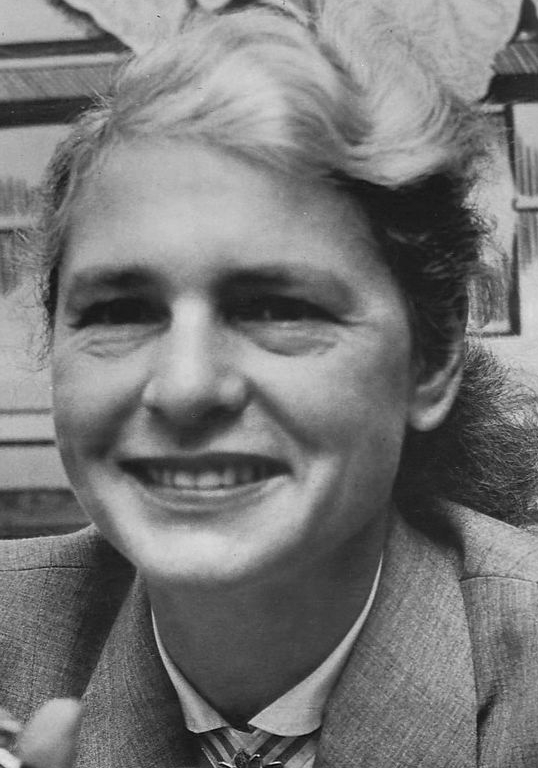On this date in 1904, Margaret Bourke-White was born in Manhattan, the daughter of a couple who had been married by Felix Adler, founder of Ethical Culture. Her mother, Minnie Bourke, an Irish American, was a progressive feminist and reportedly an ardent atheist, who always told Margaret she was “invited into the world” as a planned child. Her father, Joe, an amateur inventor, encouraged Margaret’s intrepid interest in snakes and wild pets. Margaret graduated from Cornell in 1927 with a degree in herpetology (study of reptiles).
She was hired by Henry Luce to become a staff photographer for the nascent Time magazine. In 1930 she talked herself into Russia, filming as she traveled the Trans-Siberian Railway. She became Life’s first woman photographer and the first woman to have a photograph on its cover. In 1937 her book of haunting photographs of the Depression, with text by Erskine Caldwell, was published.
She was married twice, briefly as a very young woman, and from 1939-42 to Caldwell. Bourke-White became the first major female war correspondent, covering the invasion of Russia, traveling to North Africa by way of a convoy, which was torpedoed, documenting the war in the Pacific, the liberation of Italy and the liberation of the Nazi death camps. She met Gandhi several times, taking a photo of him spinning fabric just hours before he was assassinated. Her unforgettable photographs of South Africa informed the world of the injustice of apartheid.
She had surgery in 1956 for Parkinson’s disease and more surgery in 1961, which left her with impaired speech. In 1971 she fell and died later that year. Her books include Eyes on Russia (1931), Shooting the Russian War (1942), Purple Heart Valley: A Combat Chronicle of the War in Italy (1944), Dear Fatherland, Rest Quietly: A Report on the Collapse of Hitler’s “Thousand Years” (1946), Halfway to Freedom: A Report on the New India (1949) and Portrait of Myself, an autobiography (1963).
PHOTO: Bourke-White in 1955 on “Person to Person” on CBS.

